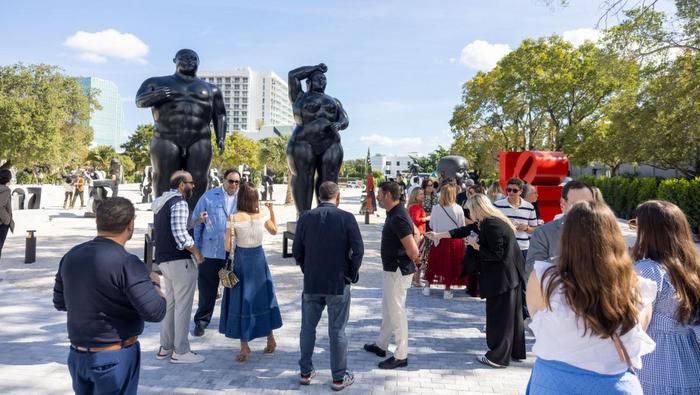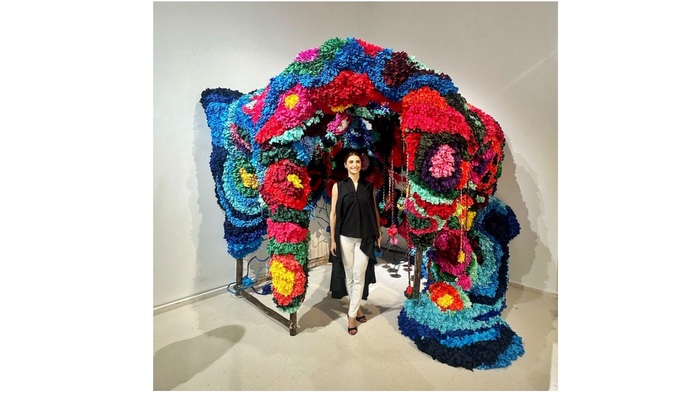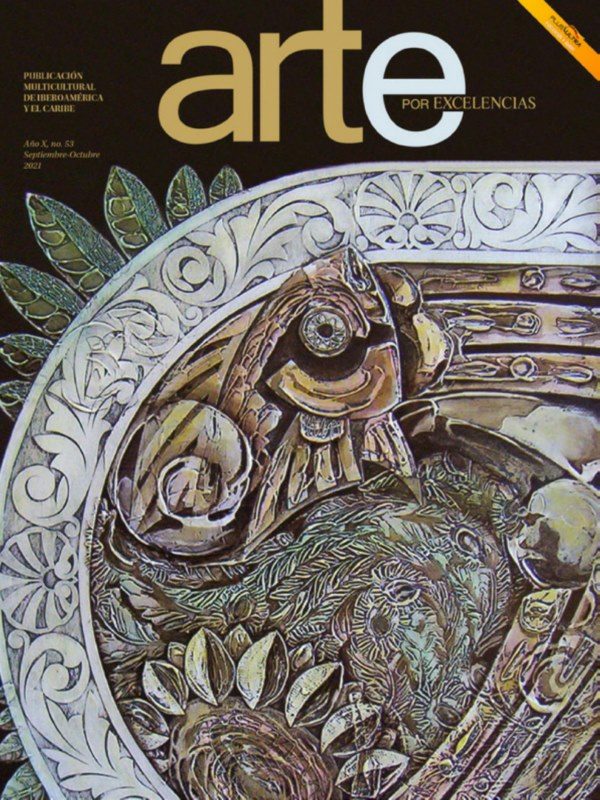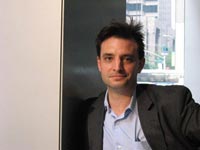
Artist and independent curator Pablo Helguera (Mexico, 1971), was the winner of the first International Participative Art Prize of all finalists that included Mel Chin (U.S., 1951) and Jeanne van Heeswijk (Holland, 1965).
Awarded twice in a year, the prize was created by the Legislative Assembly of the Italian Region of Emilia-Romagna in Bologna for artists who create outstanding art projects related with the character of the contest.
In this first edition, the jury was made up of curators and critics Julia Draganovic, Rudolf Frieling, artists Alfredo Jaar, Bert Theis and Luigi Benedetti, General Director of the Legislative Assembly of the Region of Emilia-Romagna.
Worth €15,000, the prize provides as well a fund of €30,000 for the execution of the project. In this case, Pablo Helguera will carry out a traveling cultural institute of journalism across Bologna for the discussion and analysis of social and political topics.
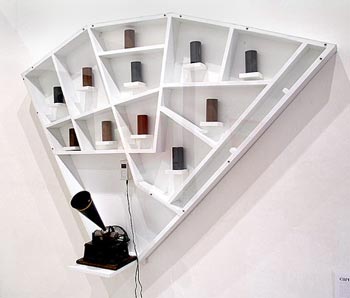 Pablo Helguera (Mexico City, 1971) is an artist based in New York whose work centers on social-political aspects, memory, language, historical narrative and theatrical and literary resources transferred to conceptual language. His work has been exhibited in the Museum of Modern Art of New York, PS1, the RCA of London, Havana Biennial, the MCA of Chicago and other important institutions and events. In 2008 he was granted the Guggenheim scholarship. He has taken part of the professional collective projects Qué hace alguien como tú en un sitio como éste? (What is someone like you doing in a place like this?) at La Regenta Art Center in Palmas of Grand Canary Island and Bellas intenciones (Beautiful Intentions) at the University of Cuenca. Helguera is the author of six books including Manual de Estilo del Arte Contemporáneo (Manual of Contemporary Art Style) (2005), El Niño en la Letra (The Boy in the Letter) (2008) Theatrum Anatomicum and Other Performance Lectures (2009).
Pablo Helguera (Mexico City, 1971) is an artist based in New York whose work centers on social-political aspects, memory, language, historical narrative and theatrical and literary resources transferred to conceptual language. His work has been exhibited in the Museum of Modern Art of New York, PS1, the RCA of London, Havana Biennial, the MCA of Chicago and other important institutions and events. In 2008 he was granted the Guggenheim scholarship. He has taken part of the professional collective projects Qué hace alguien como tú en un sitio como éste? (What is someone like you doing in a place like this?) at La Regenta Art Center in Palmas of Grand Canary Island and Bellas intenciones (Beautiful Intentions) at the University of Cuenca. Helguera is the author of six books including Manual de Estilo del Arte Contemporáneo (Manual of Contemporary Art Style) (2005), El Niño en la Letra (The Boy in the Letter) (2008) Theatrum Anatomicum and Other Performance Lectures (2009).
For several years, Helguera has been developing a project called Conservatorio de Lenguas Muertas (Conservatory of Dead Languages) in an effort to preserve languages that are about to disappear (due to the presence of hegemonic languages). Texts, songs, poems and legends are recorded in wax cylinders using a phonograph–the most ancient recording technology, also on the brink of extinction. In the Cart[ajena] event (held on Cartagena de Indias, 2007), he recorded sounds, voices and interviews in the neighborhood of Getsemani, that are preserved in that “museum of voices” accompanied by a fictional narration and a tour guide anticipating the hypothetical disappearance of the highly-populated sector of the city.
One of his projects reviewed widely by the media was Revolver. Performance (2009) at the National Museum Center of Art Queen Sophia: a lecture written in phrases and palindrome words (that can be read indistinctively from right or left). Based in the tradition of experimental literature, this lecture-performance incorporated three narrative lines interspersed: an article on current political and economic events; a personal love story, and a theoretical presentation on modern art with pieces of music–also palindrome–, from the 20th century.
Further information: www.artepartecipativa.it
Related Publications
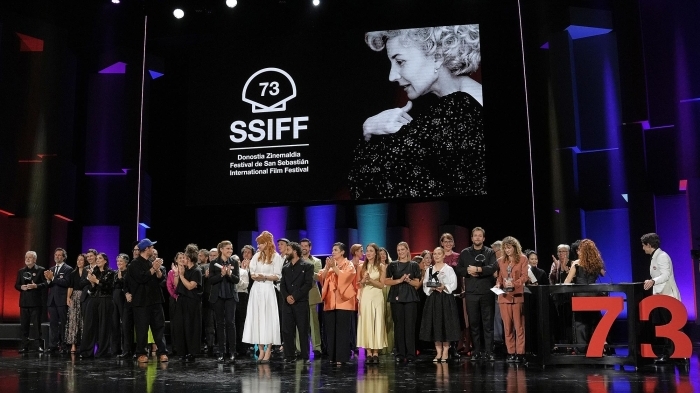
Los domingos by Alauda Ruiz de Azúa wins the Golden Shell at San Sebastián
September 29, 2025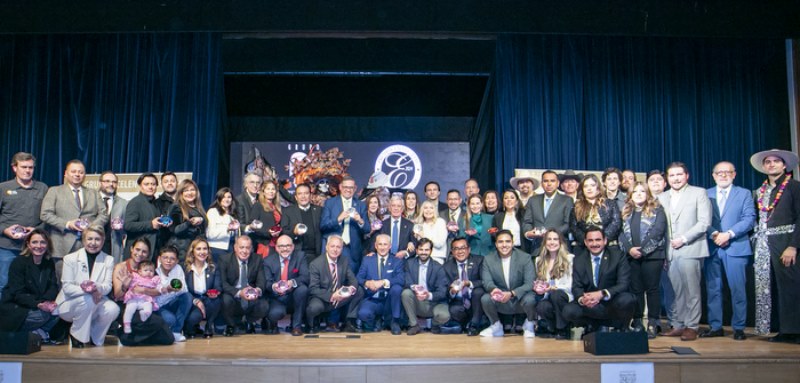
Winners of the Excelencias Awards 2024 in their 20th Anniversary
January 23, 2025